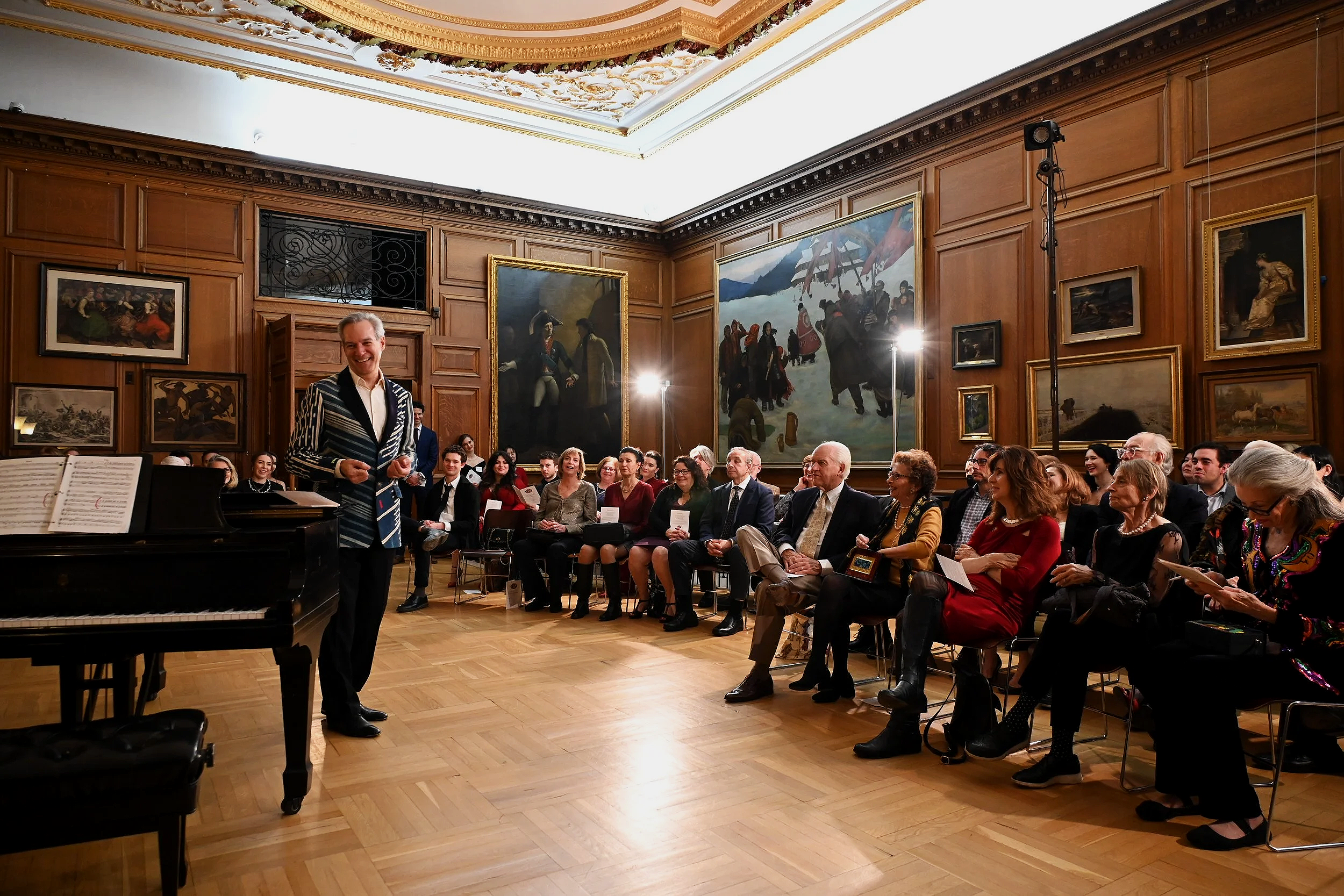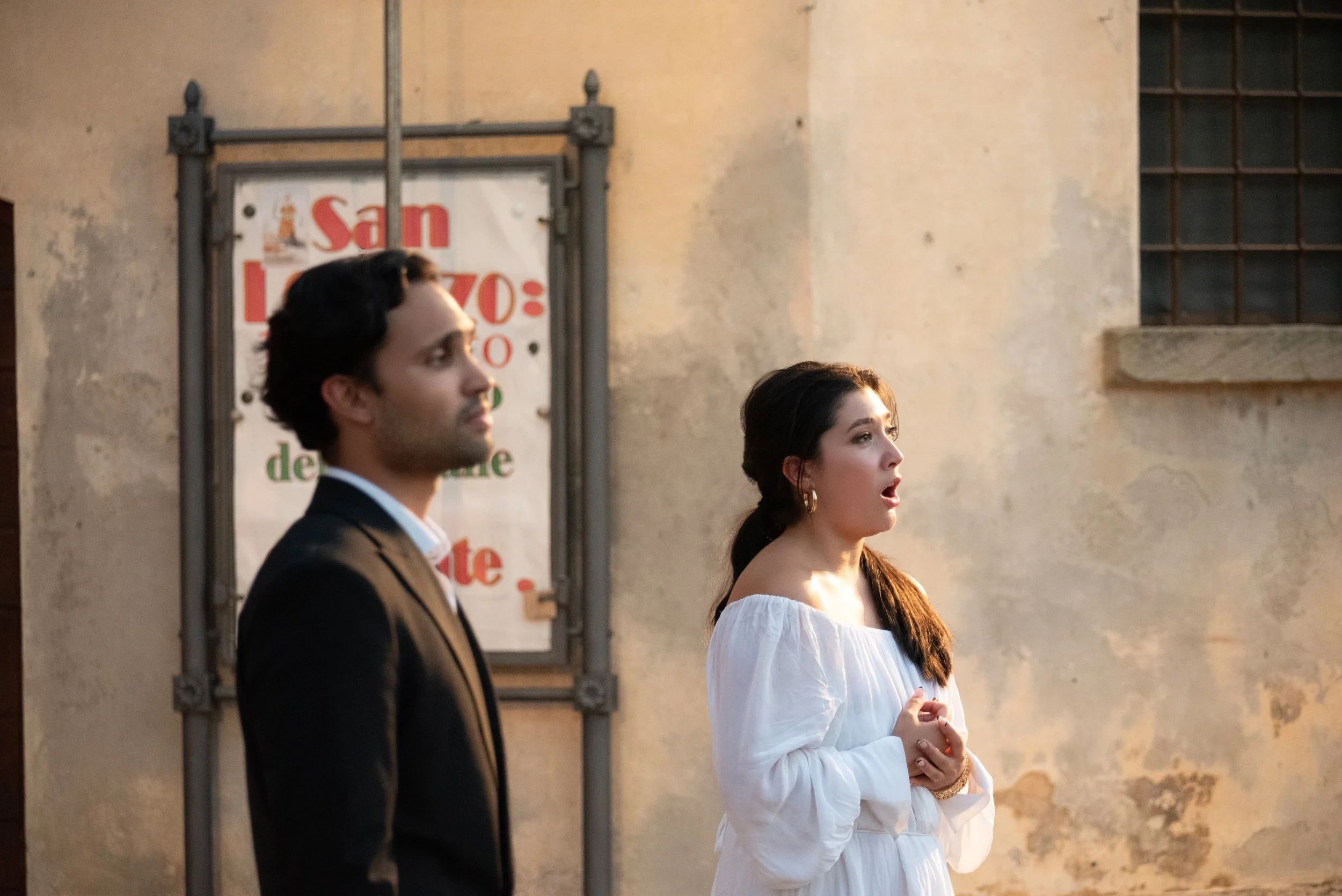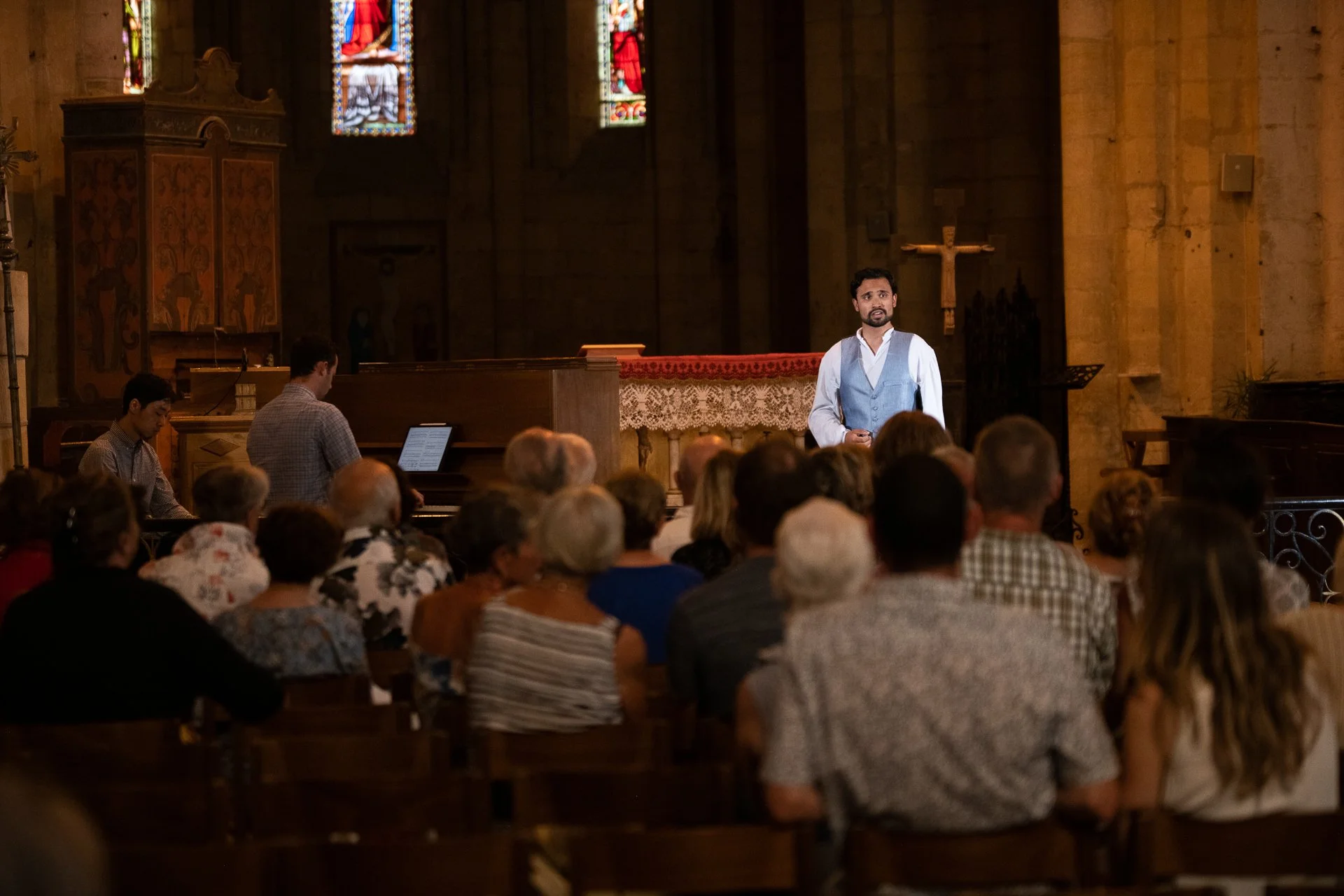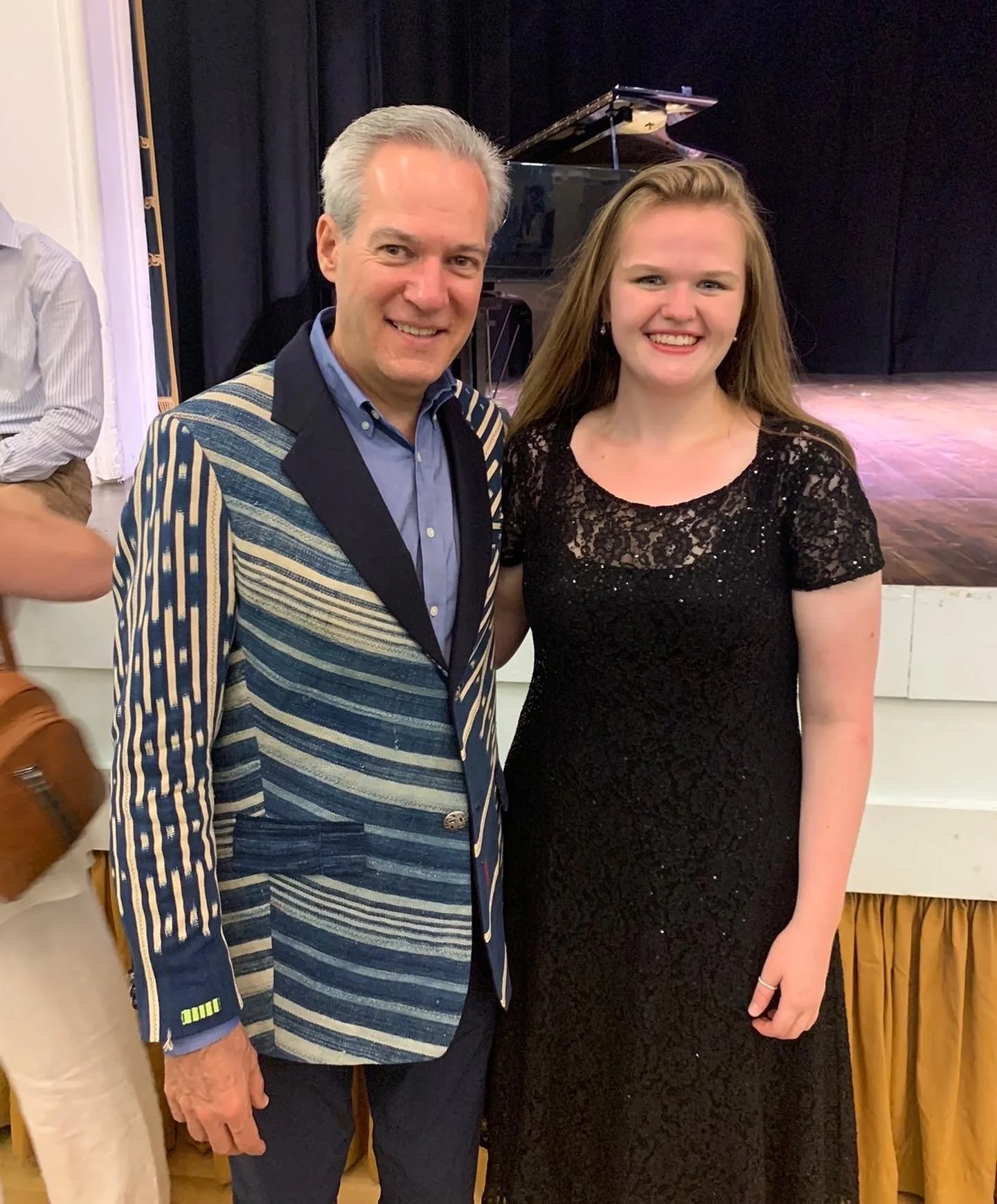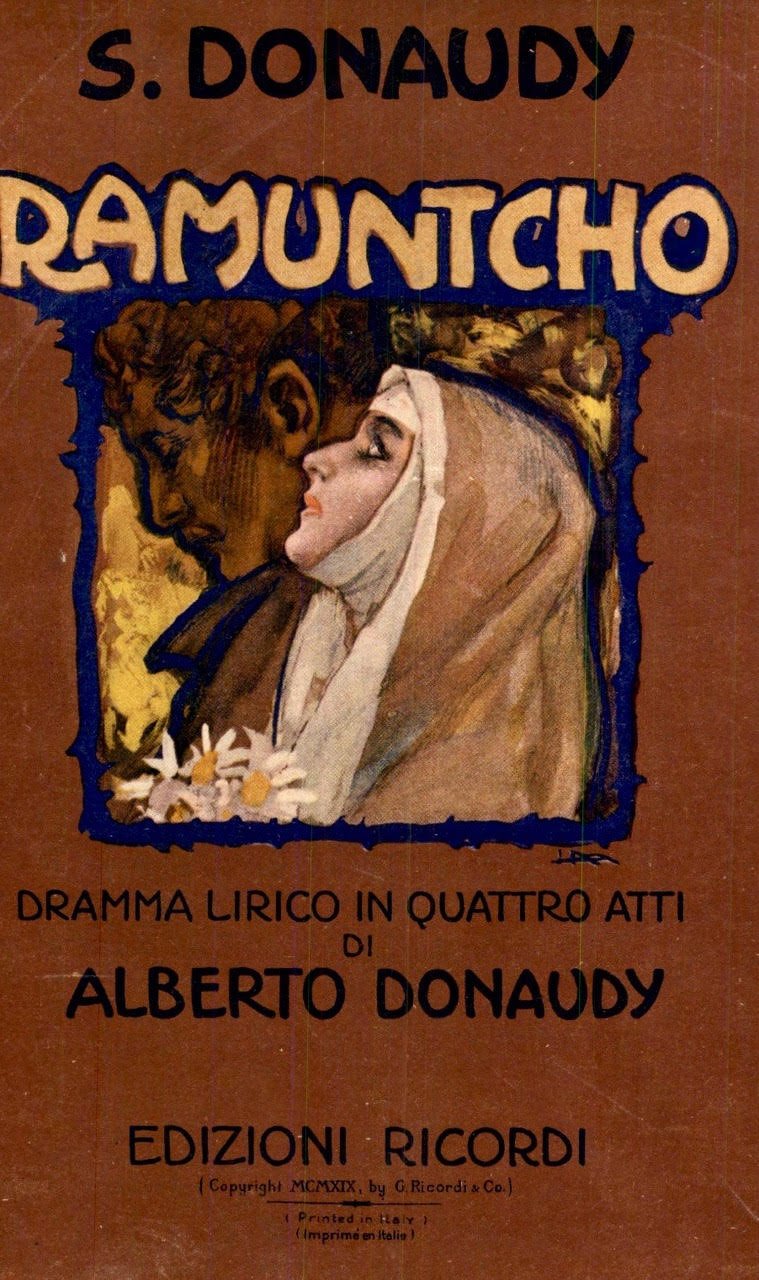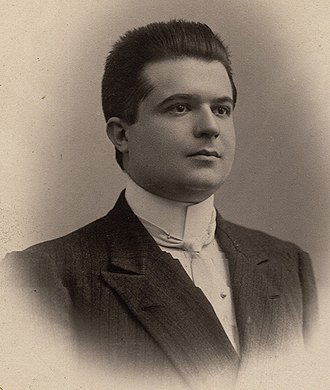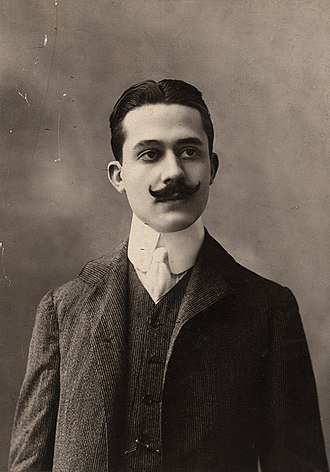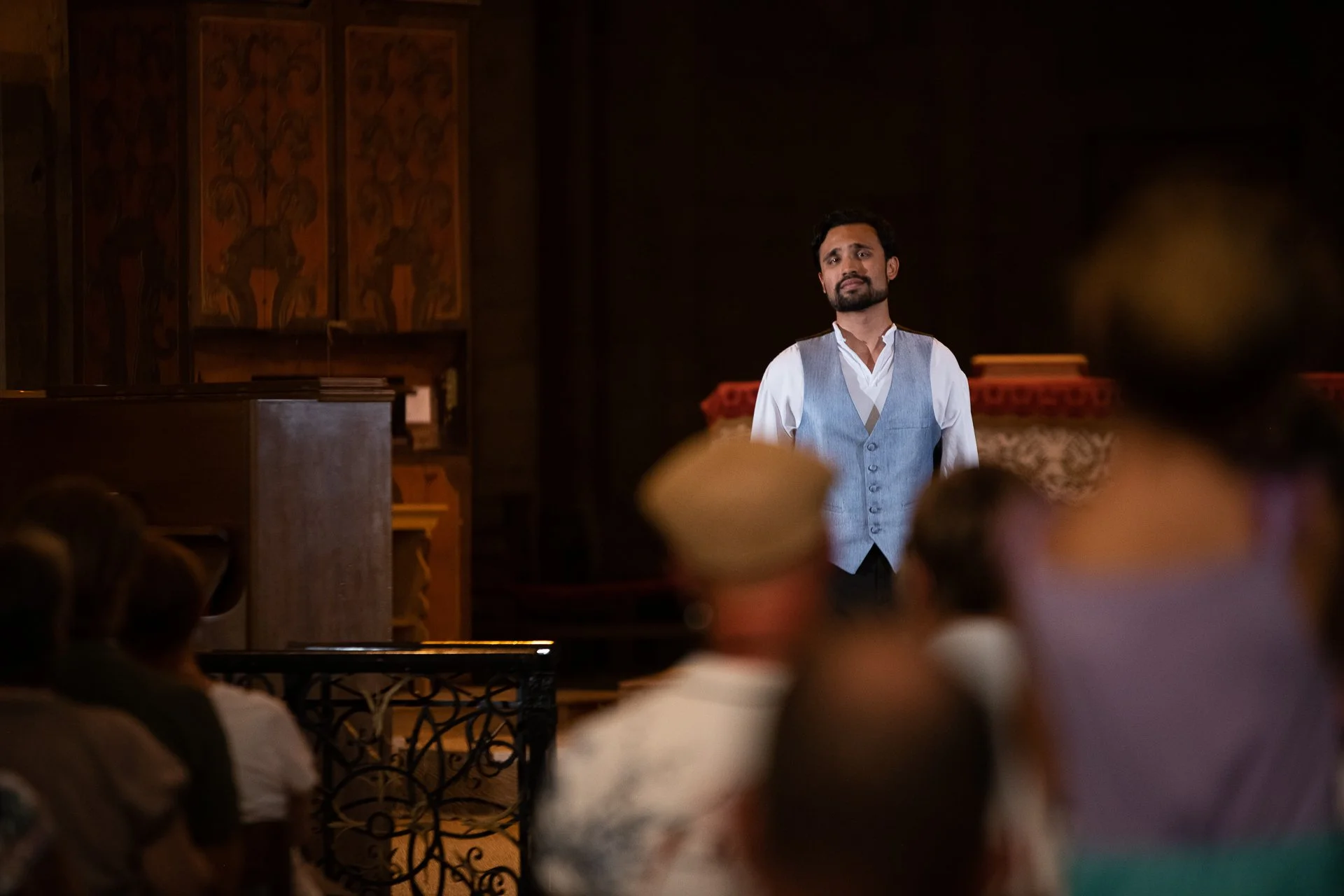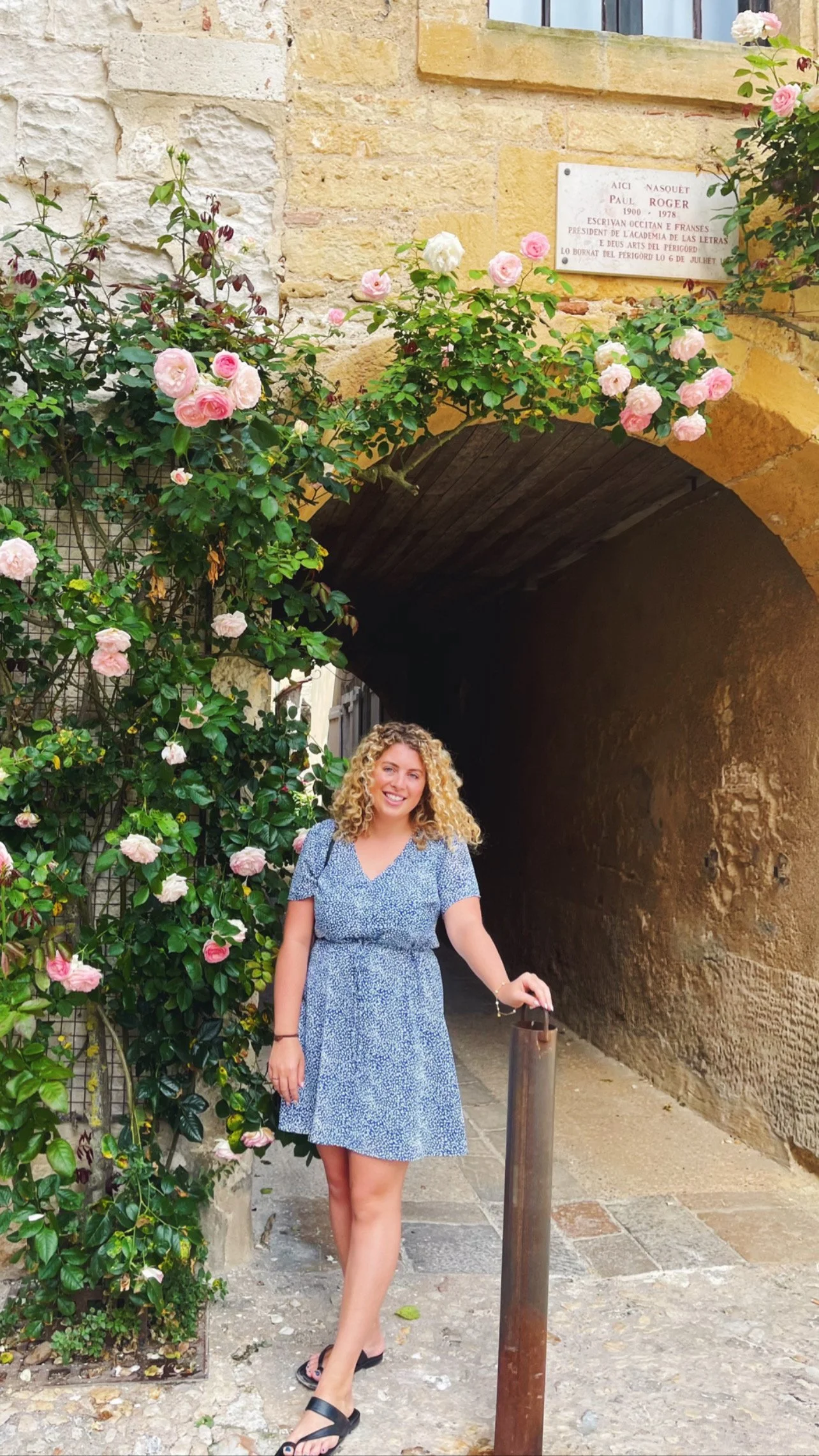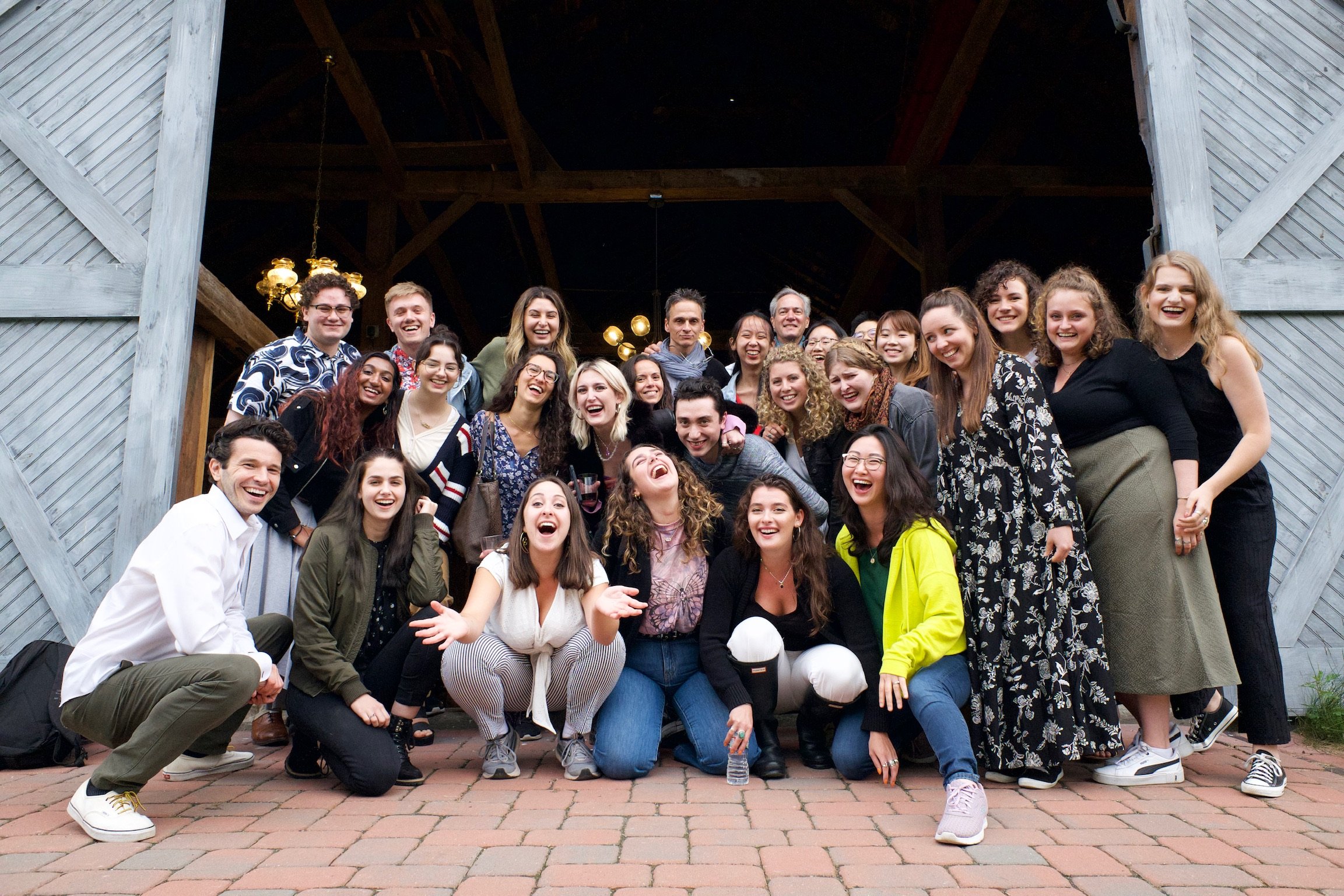As this year comes to a close, our team is already fast at work preparing for our next summer of opera and song. We are thrilled to announce our Classic Lyric Arts 2023 Summer Programs taking place in France, Italy, and the Berkshires.
CLA Italy Perspectives: Sofia Gotch
From the moment I stepped foot in Novafeltria I was welcomed into an environment that cultivated empowered learning and growth. Each day was filled with morning meditative chant, individual coachings, Italian language lessons, intense and exciting ensemble rehearsals, and (of course) a lot of pasta and pastries.
CLA Italy Perspectives: Sara Stevens
CLA Faculty Perspectives: Ennio Brugnolo
L'anno scorso, 2021, dato che con il Covid 19 non si poteva viaggiare in Europa, Glenn Morton, direttore e fondatore del programma Classic Lyric Arts, decise di trasferire il programma italiano da Novafeltria a New Lebanon, New York. John Viscardi, recentemente nominato Executive Director della CLA e laureato dell’Accademia delle Arti vocali in Filadelfia dove io insegno italiano e dizione, mi propose di fare una intervista con Glenn via Zoom. Dopo l’intervista Glenn mi diede i dettagli del programma e così comincio’ la mia avventura con CLA. Nel primo programma ebbi l’opportunita’ di conoscere e lavorare con insegnanti di altissimo livello, come Stefano Sarzani, pianista e direttore d’orchestra; Raphael Fusco, pianista, compositore e maestro della pasta fatta in casa, Michael Sheetz, pianista e maestro di coro, Glenn Morton, pianista, insegnante e amante della lingua italiana.
Poi ci sono gli studenti... di diverse nazionalita’ ed eta’, guidati da una meta comune: raggiungere il piu’ alto livello possibile nel comunicare ed esprimere con la loro voce il testo e la musica del compositore e librettista, con nitore di pronuncia, senza gigionate e esagerazioni, ma con buon gusto e signorilita’. L’amore e la passione per l’opera, per comunicare con la voce i loro intimi sentimenti, porta questi studenti ad un livello da loro impensato ed incita gli insegnanti a domandare ancora di piu’.
Quest’ anno, con l’introduzione di un nuovo programma, CLA Berkshires, ho avuto l’opportunita’ di rispolverare i tre capolavori di Mozart-Da Ponte: Così fan tutte, Don Giovanni e Le nozze di figaro, insieme all’Idomeneo e La clemenza di Tito. Due settimane in questo ambiente familiare ma di intenso studio hanno favorito l’entusiasmo e il desiderio di imparare di piu’ e trovare gioia nello svolgimento e realizzazione del compito. Grazie Glenn e a tutti i miei colleghi, Stefano Sarzani, Daniel Isengart, ma sopratutto, grazie a voi, studenti cosi’ volenterosi e dedicati e pronti a dare una nuova vita a questa stupenda arte chiamata OPERA.
Last year, 2021, since traveling in Europe was not possible due to Covid-19, Glenn Morton, Founder and Artistic Director of Classic Lyric Arts, decided, with his collaborators, to move the Italian program from Novafeltria, Italy, to New Lebanon, New York. John Viscardi, recently named Executive Director of the program and a graduate of the Academy of Vocal Arts in Philadelphia, where I am the Italian instructor, contacted me and asked me to have an interview via zoom with Glenn. After the interview, Glenn gave me the details of the program, and so my adventure with CLA started. In the first year, I had the opportunity to meet and work with highly skilled and passionate teachers, including Stefano Sarzani, pianist and orchestra conductor; Raphael Fusco, pianist, composer and master pasta maker, Michael Sheetz, pianist and choir director, and Glenn Morton, pianist, educator and lover of the Italian language.
Then, there are the students…different nationalities, different ages, driven by a common goal: to reach the highest level possible to communicate and express with their voices the text and the music of the composer and the librettist, with clean pronunciation, without exaggeration but with taste and artistry. The love and the passion for opera, to communicate with their voices their most intimate feelings, takes these students to a much higher level of professionalism, and motivates the teachers to demand even more from them.
This year, with the introduction of a new program, CLA Berkshires, l had the opportunity to revisit the three of Mozart and Da Ponte’s masterpieces: Così fan tutte, Don Giovanni and Le nozze di Figaro, together with Idomeneo and La clemenza di Tito. Two weeks in this friendly environment of intense study, have encouraged and promoted the enthusiasm and desire to learn more and find joy in the process. Thanks to Glenn and all my colleagues, Stefano Sarzani, Daniel Isengart, but, most of all, thanks to you, dear students, who are so willing and full of desire and ready to give new life to this stupendous art form called OPERA.
CLA Community: La Canzone Perduta (The Lost Song) by Marshall Berland
alla ricerca di UNA canzone perduta
A PROUSTIAN MOMENT IN ITALIAN MUSIC....
Fully fifty years ago in 1971, another musical fanatic like myself gave me a cassette (REMEMBER THOSE?) of some rare opera arias. At the end there was a fragment of a little song -- with no notes on what it was, who wrote it or anything. (He was a vegan food nut who left for Virginia Beach to study at the Edgar Casey Institute-- the toast of the lunatic fringe at the time.) This little song --just a trifle-- stuck in my mind; it was incomplete--the last stanza was only half there, but there was enough to stick in my mind forever. I would sing it at the top of my lungs over the cancelling noise of my lawn tractor as I mowed. (I thought)
My Mistake:
Years later, my neighbor told me she loved to hear me sing as I was mowing the lawn. (My singing, even at best, is no pleasure) I was mortified to realize that I had been serenading the neighborhood.
Since my retirement in 1995, I have devoted myself to differing forms of serving the Muse of Music. But even with my total obsession, I never found the song -- Mia canzone perduta...
There are literally thousands of these little songs written for recitals through the centuries, when people would sing and play instruments as home entertainment. It was considered part of being civilized. Today I think the word 'civilized' would have to be explained to Millennials --now, entertainment has to have "battery included."
Fast forward to my involvement with Classic Lyric Arts and Artistic Director Glenn Morton, bringing young opera hopefuls to France and Italy for total immersion in the diction and language of music. I croaked out the tune to Glenn in my basso non troppo profundo, but despite his vast experience as a vocal coach, it was impossible for him to tell.
For the past decade or so, I've worked on fundraising with Glenn, finding ways to acquaint people with the exciting things CLA is accomplishing. A mutual acquaintance made a video in 2017 at one of the fundraising recitals in New York. I received my internet copy and as I listened avidly, the second soloist cleared his throat, and, Mirabile Dictu! launched into MY SONG! Mia canzone perduta. (Beautifully, I might add!)
It was Stefano Donaudy's O del mio amato ben, number 18 of the famous 36 song cycle of arie in the "Antique" style: Arie di Stile Antico with lyrics by his brother Alberto, who wrote virtually all his libretti.
Armed with this information, I retreated to YouTube and incredibly, discovered the actual identity of the scratchy record. It was a 1933 Nimbus recording of Milanese tenore di grazia Tito Schipa, who was regarded as one of the most popular tenors of his age--beginning in Chicago then from 1932 to 1935 at the Metropolitan Opera. His reputation was marred by his support of the fascisti after the 1935 Italian invasion of helpless Ethiopia. He returned to Italy from America in 1939 Here is the original recording I heard in 1971:
He looks a bit like one of Al Capone's henchmen and his light tenor grew huskier as his career went on, but his portamento and tender handling of lyrics is quite nice. He had his detractors, but the public loved him. Like his countryman Caruso, he knew how to lay on the prosciutto and they loved him.
A further search revealed that virtually all the most famous singers have recorded something from the collection. It was there right under my nose all the time; albeit Donaudy is not exactly a household word outside the performing community. Indeed, except for this cycle, he was forgotten soon after his time...a period dominated by contemporaries Verdi, Puccini and the Verismo composers.
Most composers are famous for major works like operas, but his was the exception to the rule, Although he wrote a number of operas performed during his lifetime, they have virtually disappeared.
But who was he?
He was born February 21, 1879 in Palermo, Sicily to an Italian mother and French father during a particularly affluent period associated with a number of wealthy Anglo-Sicilian families who settled in the salubrious climate of Palermo during this period. They built grand mansions and villas in the Art Nouveau style of the period which the Italians called La Stile Liberty after the London department store that championed the sinuous nature-inspired objets d'arts, furnishings and Japonaiserie of the period.
He would later visit these houses as a vocal coach to the residents, but his prodigal talents emerged very early in life. Although biographical information and scholarship about him remain slim, there is ample evidence that he was precocious. Vaghissima sembianza, one of the most popular songs, was written at the tender age of thirteen in 1892 as was his first opera, Folchetto.
There is a very interesting seventeen minute biography called Vaghissima sembianza that tells much about him by vocal coach Michael Recchuiti. It is obviously a labor of love, with arie sung by Elizabeth Blancke-Biggs and Recchuiti at the piano.
Here is a remastered Caruso singing the title song:
Donaudy is often compared with contemporaries Marcel Proust and Venezuelan-born French composer Reynaldo Hahn born in 1874. (We share birthdays -- August 9). Hahn and Donaudy both wrote more major works, but they especially share prolific output of tender, expressive songs reminiscent of the Renaissance -- of Bellini and Donizetti -- with the light effortless touch of bel canto that set them apart... the ardent lover singing of his passion.
Here is Luciano Pavarotti, (pounds before his later roles), singing O del mio amato ben:
Like the rest of the collection, his brother Alberto wrote these lyrics. Alberto also had an independent success as a poet and lyricist until his death on October 13, 1941. He wrote the libretto to Marinuzzi's opera Jacquerie.
(There may be a familial link to Piedmontese economist Ignazio Donaudi delle Mallera [1744-1795] who figures importantly in the annals of their history of agricultural reform.)
YouTube reveals a number of other renditions of his songs -- they caress the voice with just enough drama to thrill the audience. Full of Sicilian bravura, they were and are often included in recitals and performances by artists like Gigli, Rosa Ponselle, Sumi Jo, Andrea Bocelli and Marcello Giordani to name a few.
These Italian works came late to the song repertoire, following the lieder of Mozart and Schubert. There is more of a kinship in the nuanced inter-relationship of words and music of French mélodies and chansons of Ravel, Debussy, Satie and Poulenc. The distinction is often made that chansons are folk or popular songs of the cabaret, while mélodies are more in the tradition of the salon, albeit the significant French output is considered Post-Romantic, in contrast to the earlier Schubert lieder which bridge late Classic/early Romantic periods. In performance, they nevertheless appear on the same programs. Discussing this repertoire, I would compare these briefer works to translucent aquarelle watercolors, with operas being major oil paintings by the same masters. The lines between are often blurred.
These arie are deceptively simplicity and direct. The melodies are indivisibly linked to the lyrics. Glenn Morton described them "some of the most beautiful of the Italian romanzas...an important part of the repertoire like those of Francesco Paolo Tosti, whose nearly 400 songs were in the style of Bellini where the elements of bel canto of primary importance. The writing is simple, but mastering a perfect legato, fluid diction, dynamic control and the arc of the phrase are at the heart of all Italian song."
Although Stefano Donaudy wrote a number of operas -- Folchetto (Palermo, 1892); La scampagnata (Palermo, 1898); Teodoro Koerner, Sperduti in buio (Palermo,1907) and Ramuncho which premiered March 19, 1921 in Milano. However, his denouement came with the performance of his final opera, the one act La Fiamminga which premiered April 25, 1922 at the Teatro San Carlo in Napoli.
There is a tantalizing lack of information that would explain the general impression that it was "an unmitigated fiasco" -- a disaster so crushing that he completely abandoned composition surely contributing to his death three years later when he was barely forty-six.
One can only surmise that he literally died of a broken heart.
If only he could have known that these modest songs in the antique style would live on in virtually constant performance, loved by performers and audiences all over the world for more than a hundred years.
As a PS; here is famous tenor Carlo Bergonzi's take on the aria:
As a beloved concert piece, it is a guaranteed audience favorite, sung by young singers in training as well as in recital. These songs, along with those of Francesco Paolo Tosti, form a stable repertoire for singers ontheir way up and the way down. Although contemporaneous with Verismo, these songs harken back to genteel times of chivalry and tenderness. They speak softly of love. Their lustrous tessitura enhancing the voices of all who present them as beloved favorites to audiences everywhere.
The disappearance of his operas is mysterious....Perhaps some musicologist can explore the annals of his publisher, Ricordi, to find some of these and other unheard works -- perhaps finally giving him the acclaim he deserves.
- Marshall Berland
CLA France Perspectives: Bradyn Debysingh
CLA France was a daily baptism into all the facets of French culture: mornings starting with fresh fruit, cheese, and baguettes, afternoons filled with song and poetry coachings, evenings giving way to walks in the fields of the Périgord, and much local food and wine peppered into the mix on the grounds of our château, Les Jouandis – un petit paradis!…
CLA Berkshires Perspectives: Talar Arslanian
After lockdowns due to the pandemic, it was very difficult to find motivation or purpose as a singer. It greatly affected the whole world, but luckily the arts are resilient and persevered in a time when we needed it the most. My experience at the Berkshires was the first glimmer of hope now that we are getting back on our feet. My time at the Berkshires was also evidently a great part of my journey in healing both personally and artistically. It was quite a providential experience:
The CLA Berkshires provided a very healthy environment for a growing artistic soul. There is an emanating spirit of learning among the young artists, and I am deeply fortunate enough to now call them my fellow colleagues and friends. Everyone was extremely gifted, and it was inspiring to work alongside others who have the same passion for their artistry. Also, among the young artists, there was a sincere sentiment of encouragement.
The faculty were present and demonstrated the importance of the transparent approach to technique, refining artistry, and perfecting diction/language. Stefano was extremely meticulous, very knowledgeable, and gifted in approaching musical nuances and language. His direction was very clear and precise which is a blessing. Ennio taught the Italian language classes that we had every day. Ennio’s humor combined with the natural knowledge of the Italian language, and the supreme experience singing with the golden era voices- provided a very productive understanding of language and singing. Daniel was delightful to work with, his approach to aesthetics and maintaining the artistry of stagecraft in our bodies was eminent. He was able to guide and teach us the importance of breath and intention-which is also the foundation of daily living. The Berkshire experience also provided a high level of artistic direction on behalf of Glenn who was able to open my mind to resonance in a way that I have never been exposed to before. This was of course extremely profound to one who wants to make a career out of resonating. Resonance is also very unique to each person, which contains great power and depth both technically and spiritually.
Overall, to say I have a deep sense of gratitude to Glenn, Ennio, Daniel, Stefano, and John is an understatement. The CLA Berkshires experience is built upon faculty that believes in your talent and helps you refine it. On the other hand, I am so grateful for all the young artists and the opportunity to cultivate friendships with other wonderfully talented and passionate people was beyond a blessing for me. I will never forget all the priceless times at the CLA Berkshires July of 2022.
Sending the Warmest regards,
Talar Arslanian
“Your identity. Your history, deeds and situation. Use those to shape your creation and you will produce something unique. Whatever you make, base it upon that which is most important to you. Only then will it have depth and meaning, and only then will it resonate with others.”
― Christopher Paolini

